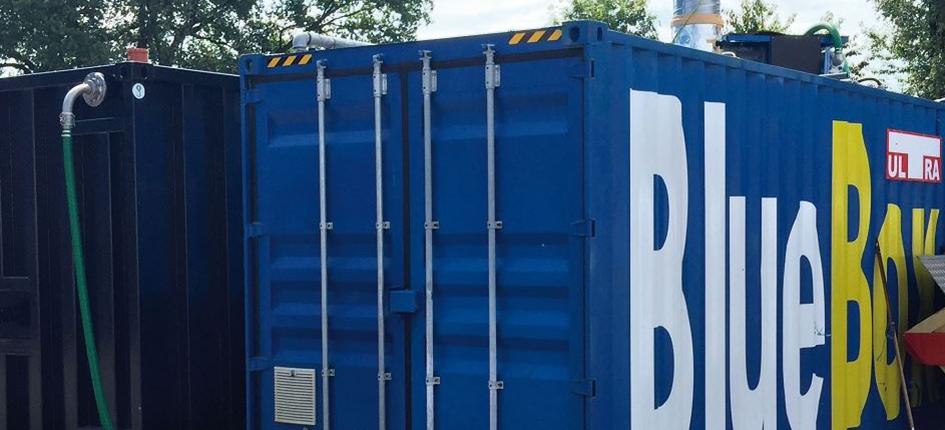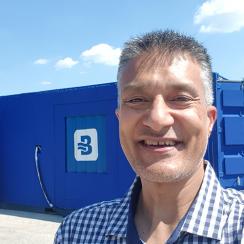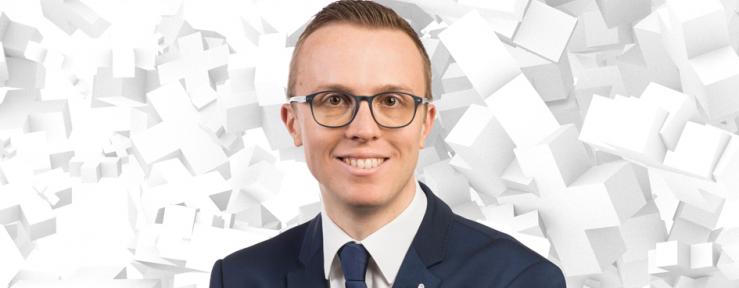“There is far too much slurry in the world and not enough space over which to spread it,” explains David Din, founder and CEO of Bluetector. In order to use this surplus slurry efficiently and to further promote sustainability in agriculture, Bluetector developed the Bluebox Ultra in 2012. This process converts slurry or fermentation residue into clean water in three steps, which can be used for irrigation or cleaning purposes. The treatment process completely decomposes chemical elements such as ammonium, nitrogen and nitrates. “The BlueBox Ultra works essentially the same as a municipal wastewater treatment plant – except that our product was specially developed for highly concentrated, undiluted wastewater,” says David Din.
According to David Din, the idea of producing water from slurry or fermentation residue came about by chance. The company had already developed a process to treat the wastewater from toilet cabins as cost-effectively and simply as possible. “After pulling this off, we realized that this wastewater is identical to slurry.” However, there is a difference in market potential: “The market for slurry conversion is much bigger.” According to David Din, there is worldwide sales potential of almost four million BlueBoxes in the slurry sector. For toilet cabins, on the other hand, the potential is limited to 250 systems.
Projects in Germany, North America and China
Bluetector relies entirely on overseas business for sales of the BlueBox. Compared to other countries, Switzerland has no real problem with slurry. “A Swiss farmer has yet to request a BlueBox from us. This was also one reason why we initially ignored this market.”
At the moment, Bluetector's primary target market is Germany. “There are around 45,000 farms there for which our BlueBox would be suitable,” says David Din. It is not just the ecological benefits that offer an incentive for the farmers, but also the price. “In Germany, slurry is still transported by truck over hundreds of kilometers. Even farmers with average amounts of slurry pay hundreds of thousands for this transportation every year.” Bluetector wants the BlueBox to help prevent this expensive and environmentally harmful transportation – not just in Germany, but also in new markets such as North America and China. The Swiss company wants to become active in these markets and offer the BlueBox there.
Presence at the Swiss Energy and Climate Summit
One challenge for Bluetector, however, is financing this export business. “Since we have a new product on our hands, it’s practically impossible to find financing for it. To raise awareness of the product and meet potential investors, Bluetector was present at the Swiss Energy and Climate Summit in Berne with Switzerland Global Enterprise, among others. And these efforts, in addition to the refinement and development of the BlueBox, are now also paying off: the Swiss company, which is committed to sustainability, recently received 1.1 million Euro in a financing round.




